Anthropology
-
 Archaeology
ArchaeologyTo find answers about the 1921 race massacre, Tulsa digs up its painful past
A century ago, hundreds of people died in a horrific eruption of racial violence in Tulsa. A team of researchers may have found a mass grave from the event.
-
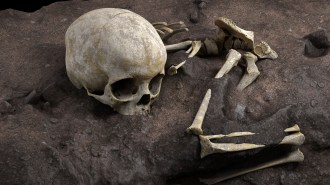 Anthropology
AnthropologyA child’s 78,000-year-old grave marks Africa’s oldest known human burial
Cave excavation of a youngster’s grave pushes back the date of the first human burial identified in the continent by at least a few thousand years.
By Bruce Bower -
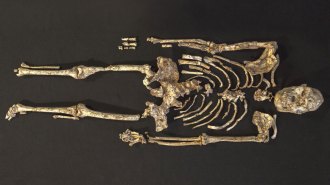 Anthropology
AnthropologyLittle Foot’s shoulders hint at how a human-chimp common ancestor climbed
The shape of the 3.67-million-year-old hominid’s shoulder blades suggests it had a gorilla-like ability to climb trees.
By Bruce Bower -
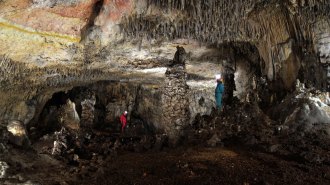 Humans
HumansNeandertal DNA from cave mud shows two waves of migration across Eurasia
Genetic material left behind in sediments reveals new details about how ancient humans once spread across the continent.
-
 Anthropology
AnthropologyA coronavirus epidemic may have hit East Asia about 25,000 years ago
An ancient viral outbreak may have left a genetic mark in East Asians that possibly influences their responses to the virus that causes COVID-19.
By Bruce Bower -
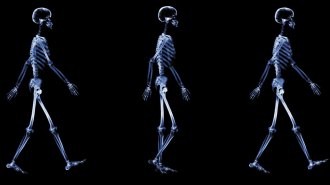 Anthropology
Anthropology‘First Steps’ shows how bipedalism led humans down a strange evolutionary path
In a new book, a paleoanthropologist argues that walking upright has had profound effects on human anatomy and behavior.
By Riley Black -
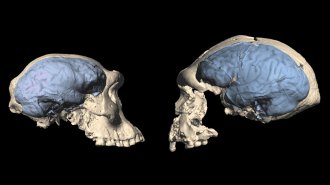 Anthropology
AnthropologyAncient humans may have had apelike brains even after leaving Africa
Modern humanlike brains may have evolved surprisingly late, about 1.7 million years ago, a new study suggests.
-
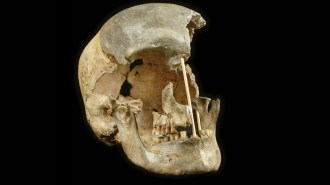 Genetics
GeneticsEurope’s oldest known humans mated with Neandertals surprisingly often
DNA from ancient fossils suggests interbreeding regularly occurred between the two species by about 45,000 years ago, two studies find.
By Bruce Bower -
 Science & Society
Science & SocietyParents in Western countries report the highest levels of burnout
The first survey comparing parental exhaustion across 42 countries links it to a culture of self-reliance.
By Sujata Gupta -
 Anthropology
AnthropologyHow using sheepskin for legal papers may have prevented fraud
Removing fat is key to turning animal skin into parchment. With sheepskin, the process creates a writing surface easily marred by scratched-out words.
-
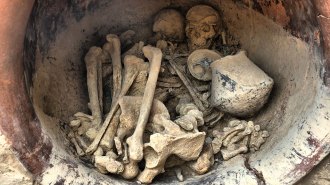 Anthropology
AnthropologyRiches in a Bronze Age grave suggest it holds a queen
Researchers have long assumed mostly men ran ancient Bronze Age societies, but the find points to a female ruler in Spain 3,700 years ago.
By Bruce Bower -
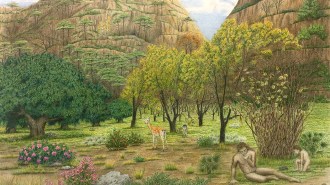 Anthropology
AnthropologyFinds in a Spanish cave inspire an artistic take on warm-weather Neandertals
Iberia’s mild climate fostered a host of resources for hominids often pegged as mammoth hunters.
By Bruce Bower